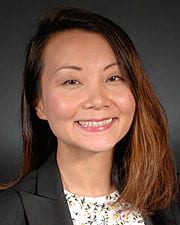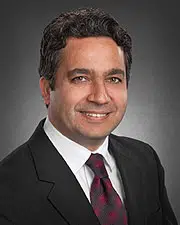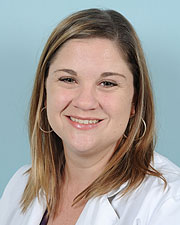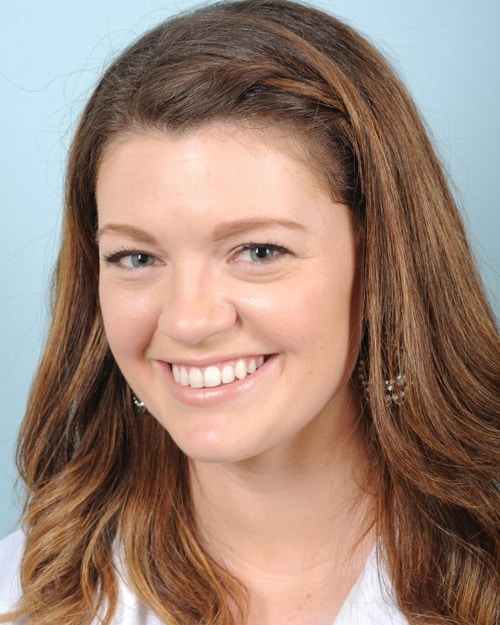Journey to Sound
How to navigate your child's path to hearing.
Newborn Hearing Screenings
The newborn hearing screening is a national health initiative developed to identify hearing loss from birth as recommended by the American Academy of Pediatrics.
Hearing loss is the most prevalent of all conditions screened at birth, but even substantial hearing loss might not be immediately obvious in a child’s behavior. Prior to implementation of universal newborn hearing screenings, children with hearing loss were typically not identified for several years until their speech and developmental were so significantly delayed that a problem became evident. Early identification and treatment of hearing loss is critical for appropriate speech, language, social, and emotional development as your child grows.
More Information
The testing performed during the screening is called an automatic auditory brainstem response (aABR). This is a painless procedure where sounds are played to your baby’s ears through small earphones. Electrode stickers are placed on the ears and forehead to record the responses from your child’s brainstem when the sound is played. This response, or lack of response, indicates whether your baby might potentially have a hearing loss. This is all done while your baby is sleeping.
What does “Did Not Pass” mean?
A “Did Not Pass” result in one or both ears means your baby needs another hearing screening. This does not mean your baby has hearing loss, it means that we still do not know what your baby can hear.
Why is it important to test my baby again for hearing loss?
Hearing loss is the most prevalent of all conditions screened at birth. Many babies with hearing loss still startle to loud sounds and most are born to parents with normal hearing. The American Academy of Pediatrics recommends hearing screenings for all newborns because the first 6 months are vital for language development and learning potential.
What is next?
Your baby will be scheduled for further testing. It is important that your baby sleep during the test. The following suggestions can help prepare your baby for the next test:
- Bring your baby tired: try to keep your baby from napping prior to the appointment.
- Be prepared to feed your baby: it is helpful to wait to feed your baby until after the test setup is complete to help your baby fall settle and fall asleep.
- Bring a swaddling blanket, extra diapers, and extra clothes.
What does “Did Not Pass” mean?
A “Did Not Pass” result in one or both ears means your baby needs further testing. This does not mean your baby has hearing loss, it means that we still do not know what your baby can hear. Your baby needs a diagnostic evaluation with a pediatric audiologist to determine what he or she can hear.
What is a diagnostic evaluation?
A diagnostic evaluation is a hearing test with a pediatric audiologist. The audiologist will be able to tell you if your baby has hearing loss, how much hearing loss there is, and what to do next.
Why is it important to test my baby again for hearing loss?
Hearing loss is the most prevalent of all conditions screened at birth. Many babies with hearing loss still startle to loud sounds and most are born to parents with normal hearing. The American Academy of Pediatrics recommends hearing screenings for all newborns because the first 6 months are vital for language development and learning potential.
What is next?
Your baby will be scheduled for diagnostic testing with a pediatric audiologist. It is important that your baby sleep for the 2-hour appointment. The following suggestions can help prepare your baby for the next test:
- Bring your baby tired: try to keep your baby from napping prior to the appointment.
- Be prepared to feed your baby: it is helpful to wait to feed your baby until after the test setup is complete to help your baby fall settle and fall asleep.
- Bring a swaddling blanket, extra diapers, and extra clothes.
Birth to 3 Months
Quiets or calms to familiar voices.
Reacts to loud sounds (startles, blinks, wakes up, stops sucking, or cries).
Makes soft sounds when awake.
3 to 6 months
Turns eyes or head towards sounds.
Begins to make speech sounds.
6 to 9 months
Responds to his or her own name and looks when called.
Understands simple words like “no” and “bye bye.”
Babbles sounds like “da-da-da,” “ma-ma-ma,” “ba-ba-ba.”
9 to 12 months
Responds to both soft and loud sounds.
Repeats single words and imitates animal sounds.
Points to favorite toys or foods when asked.
12 to 18 months
Uses 10 or more words.
Follows simple spoken directions like “get the ball.”
Points to people, body parts, or toys when asked.
18 to 24 months
Uses 20 or more words.
Combines 2 or more words like “more juice” or “what’s that?”
Uses many different consonant sounds at the beginning of words like b, g, m.
2 to 3 years
Uses 2- to 3- word sentences.
At 2 years, people can understand what he or she says 25 to 50% of the time.
At 3 years, people can understand what he or she says 50 to 75% of the time.
Follows 2-step instructions like, “get the ball and put it on the table.”
If you have any concerns about your baby’s hearing at any stage, please contact your baby’s doctor. Hearing can be tested at any age.
Audiology
Kimberly Miller, AuD, is a board certified Audiologist in the Department of Otorhinolaryngology at McGovern Medical School at UTHealth Houston.
Nancy C. McLellan, AuD, is a board certified Audiologist in the Department of Otorhinolaryngology at McGovern Medical School at UTHealth Houston.
Pediatric ENT

Zi Yang Jiang, MD, is an assistant professor in the Department of Otorhinolaryngology at McGovern Medical School at UTHealth Houston.

Zhen Huang, MD, is an assistant professor in the Department of Otorhinolaryngology at McGovern Medical School at UTHealth Houston.

Sancak Yuksel, MD, is an associate professor in the Department of Otorhinolaryngology at McGovern Medical School at UTHealth Houston.
Contact Us
Fill out the contact form and we’ll follow up with you to answer any questions you have on Newborn Hearing Screenings.
"*" indicates required fields




